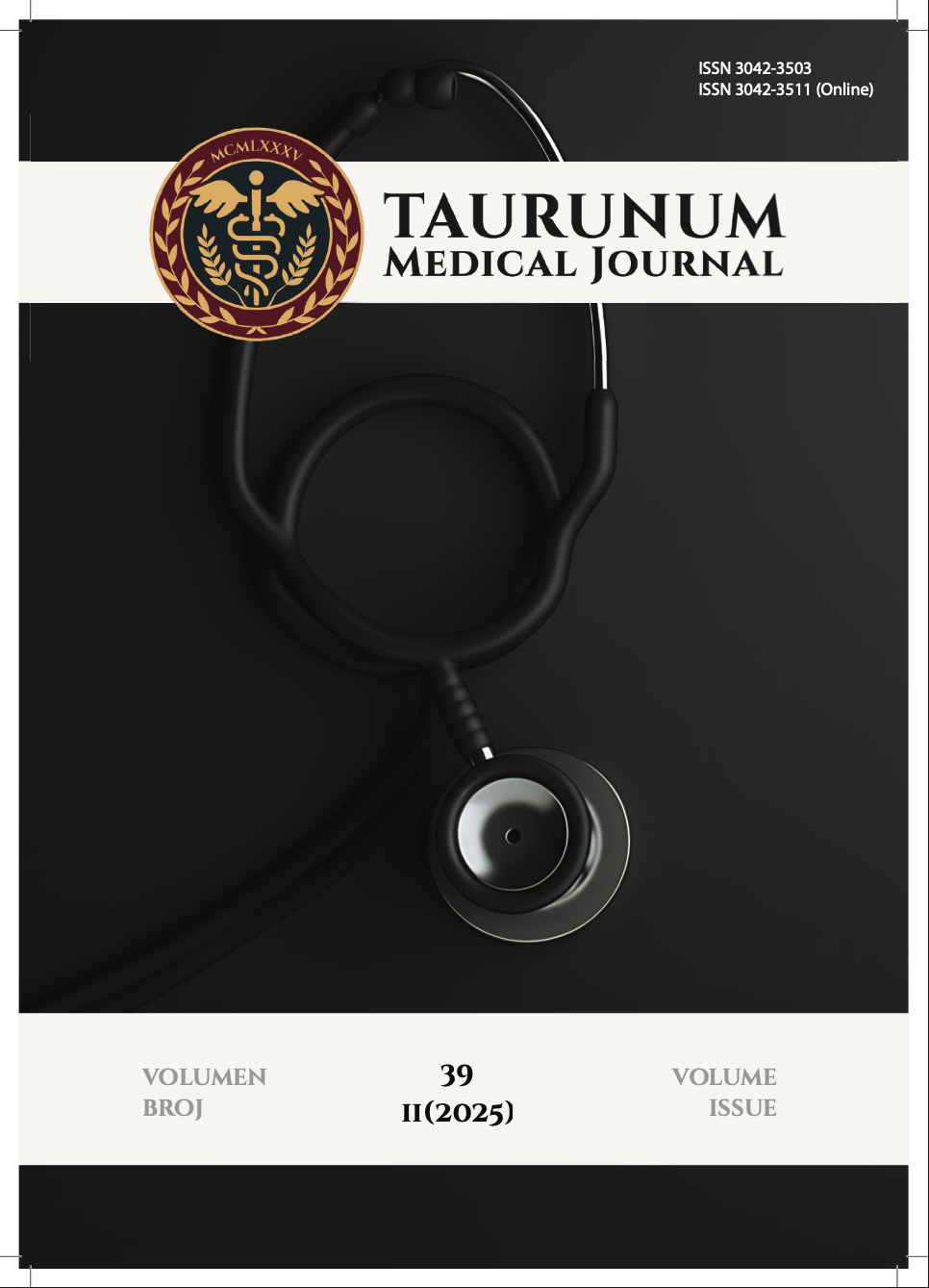Current issue

Volume 39, Issue 2, 2025
Online ISSN: 3042-3511
ISSN: 3042-3503
Volume 39 , Issue 2, (2025)
Published: 12.11.2025.
Open Access
All issues
Contents
01.01.2021.
Original Article
Gastrointestinal bleeding and prevention of complications: the role of the nurse
The aim of this study was to determine the importance of health care in the treatment of patients with gastrointestinal bleeding. Bleeding in the digestive tract is divided into bleeding from the upper and bleeding from the lower part of the digestive tract. Caring for patients with severe bleeding is a serious challenge. The role of the nurse and the way the patient approaches the patient in terms of care, but also recognizing the development of possible complications, is very important. Descriptive surveys were applied using a questionnaire as a research instrument. The study found that females are more represented than males, that the level of education is high and that most employees have been working for more than 5 years. The analysis of questionnaires from the second group of questions related to professional issues related to bleeding from the gastrointestinal tract showed that 80% (16) of respondents were thoroughly acquainted with the types of bleeding from the digestive tract, and that 70% (14) of respondents Bleeding from the digestive tract is influenced by hereditary and environmental factors, so that 65% of respondents know in detail and apply the nursing procedures used in cases of gastrointestinal bleeding. 95% answered that the nurse is obliged to fully recognize the symptoms of bleeding and possible complications, and that 60% of the respondents were fully acquainted with the procedures aimed at reducing pain in patients with gastrointestinal bleeding. All 100% of the respondents thought that the nurse was fully acquainted with the symptoms and signs of bleeding, with the procedures of diagnosis and treatment, as well as with dietary measures. 85% of respondents were aware of care measures related to reducing fear and insomnia in patients. 80% of the respondents thought that they had enough knowledge to provide care for patients with gastrointestinal bleeding, and 97% of the respondents thought that the patients were not enough, or not educated at all.
Sava Mitic, Goran Petrovic, Ljiljana Isakovic, Sanja Marjanovic



